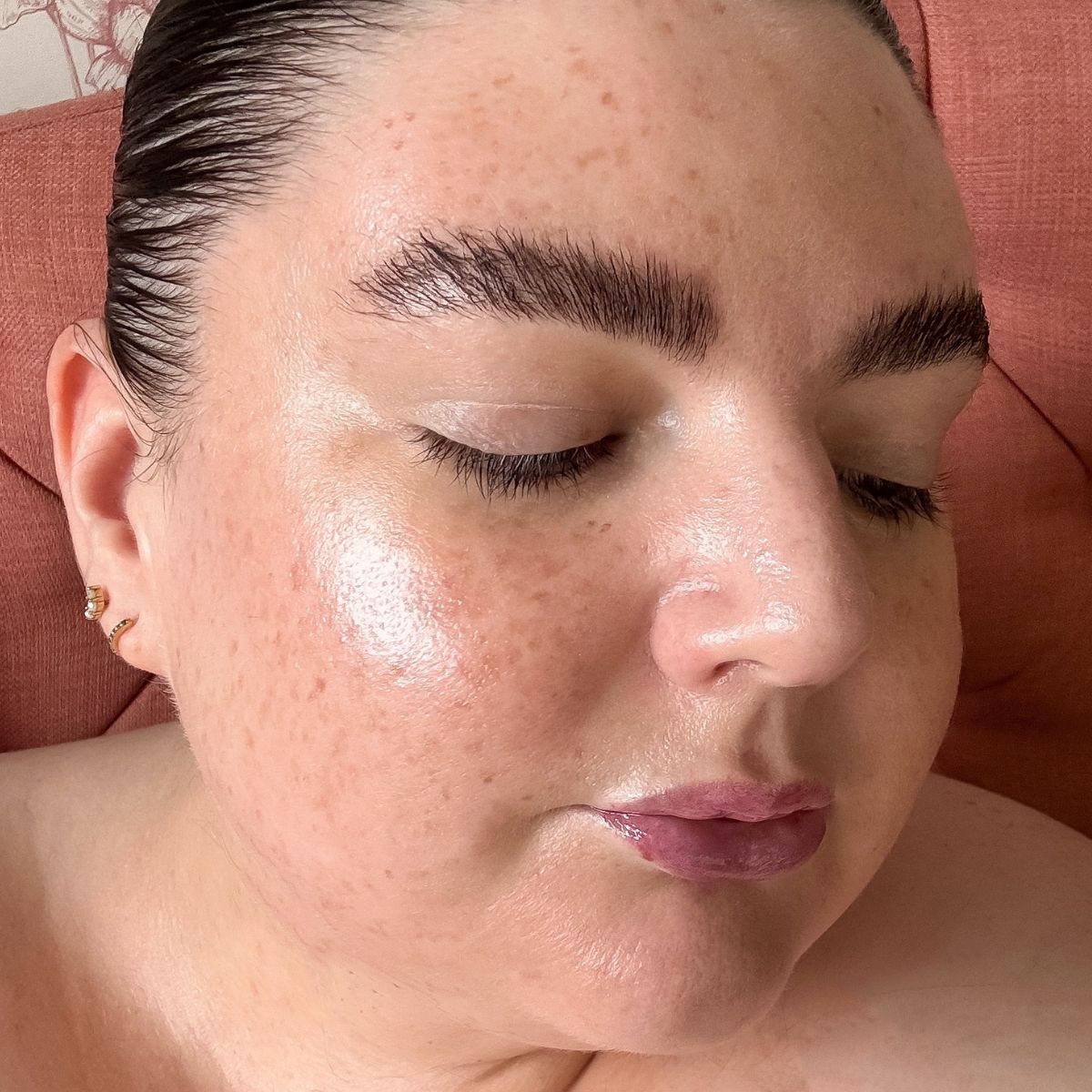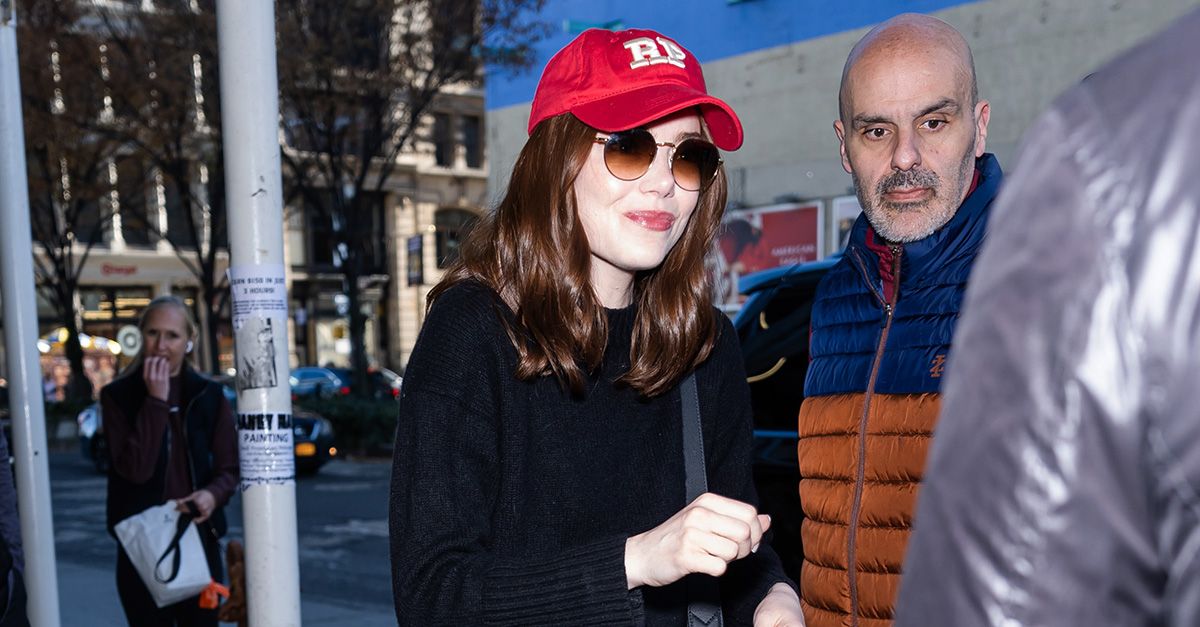Balenciaga F24 Runway Show Begs the Question: Is It Satire Or Sincere?
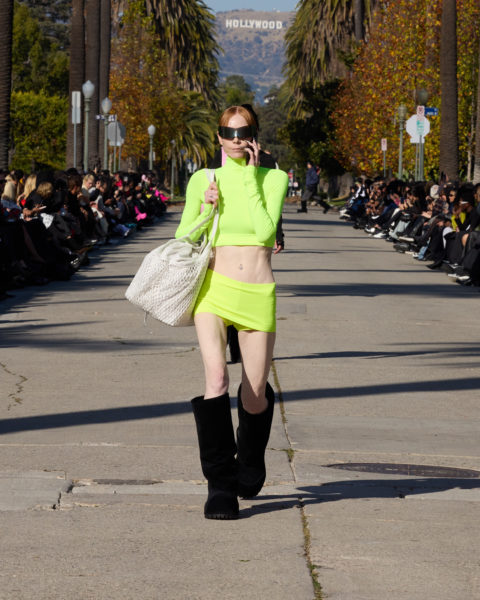
It’s increasingly hard to tell — and perhaps that’s the point.
Balenciaga is very good at getting the world to wonder, “Is this a joke?” Its latest collection — full of Erewhon branding, celebrity-inspired caricatures and extremely expensive dupes — draws from Hollywood, making the distinction between real and fake all the more hard to define.
ICYMI: After last year’s viral scandal found the brand accused of promoting child pornography, creative director Demna pledged to move away from gimmicks and focus instead on craftsmanship. “It’s a serious job, you know, to make clothes. It’s not about creating image or buzz or any of those things,” he told Vogue in February 2023. This is why it raised eyebrows that his latest collection was rooted in the most unabashed form of clickbait-y buzz: celebrity culture.

A self-proclaimed ode to L.A., the Fall 2024 show took place in a sunny, mansion-filled suburban neighbourhood. The residential road-turned-runway was lined with quintessentially Californian palm trees, framing the Hollywood sign as a picturesque backdrop. To mark the occasion, Balenciaga partnered with Erewhon — the viral health-food grocer that sells $20 USD smoothies — on a specialty drink, branded aprons and luxury shopping totes. Through 77 looks, the collection crafted a wardrobe that could take its (very wealthy) wearer from pilates to premieres.
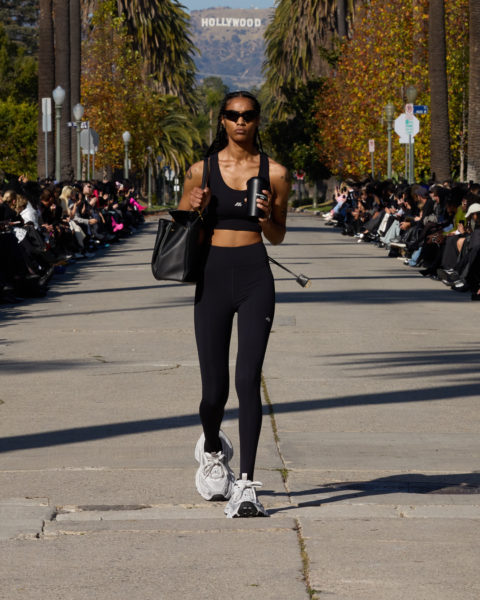
Models stomped in cartoonishly oversized sneakers and UGG-inspired boots, gripping coffee cups, water bottles and Balenciaga-branded Erewhon bags. Yoga pants and skimpy velour Juicy Couture-esque tracksuits paid homage to Y2K It girls, while trash bag gowns and hotel slippers were reminiscent of the bewildering ensembles Julia Fox might wear today.
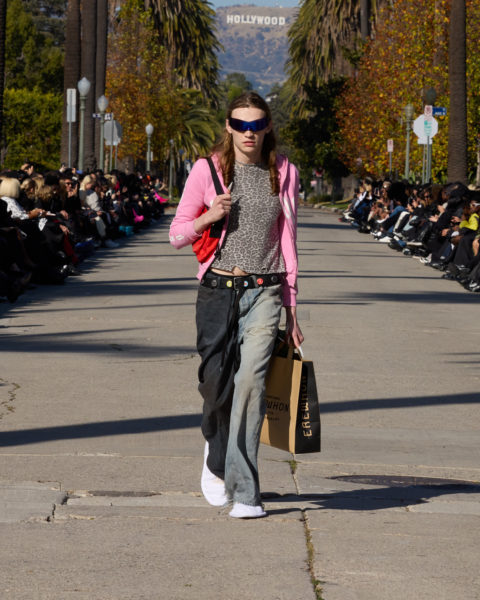
Jackets with integrated scarves, hooded dresses and face-obstructing sunglasses served as classic symbols of overexposed celebs using clothes to conceal their identities. To top it off, many models walked with iPhones glued to their cheeks, presumably too preoccupied to care that they were gracing a high-fashion runway. The impractical proportions and outwardly aloof attitudes seemingly positioned celebrities as the butt of the joke. But all the while, this very demographic was eagerly looking on.
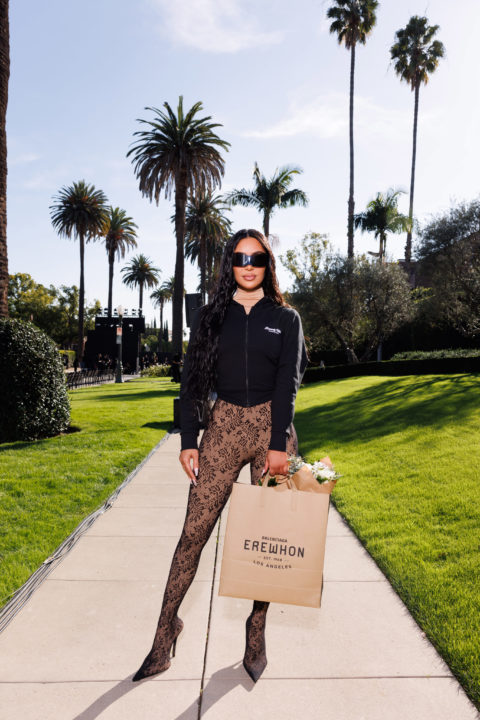
Sitting front and centre was Kim Kardashian, a longtime ambassador for the brand and arguably the most famous figure in Hollywood. Wearing a pair of lace-adorned pant-a-boots (pants combined with boots, that is), she posed for pictures flaunting a branded Erewhon bag with flowers peaking out, for a fresh-from-the-market visual. (That was, of course, deliberately planned.)
Other A-list attendees included Kendall Jenner, Nicole Kidman, Selma Hayek, Tracee Ellis Ross, Eva Longoria, and Cardi B, who doubled down on her support for the brand by walking the show. Celebrities, clearly, were synonymous with the collection, making the see-and-be-seen performativity of Los Angeles culture come to life.
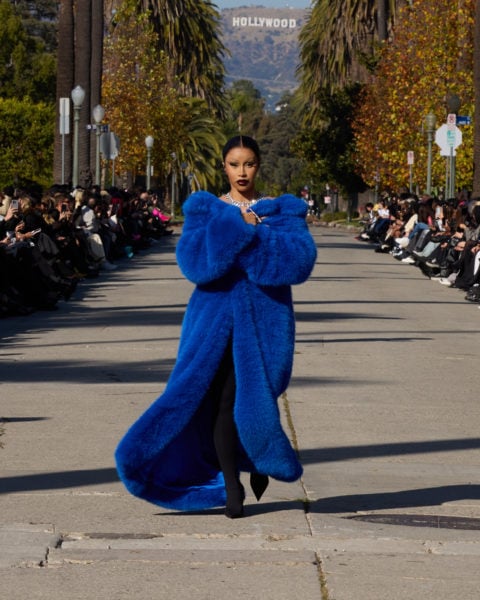
“Often people perceive my work as ironic — actually it’s the opposite,” Demna told reporters after the show, according to WWD. “I was showing my love to the influence that I got from this city, it’s my favourite city in the world,” he continued, citing his appreciation for Hollywood music and movies. To his point, the show — in all its intentional ridiculousness — was a pretty accurate reflection of Hollywood status symbols.
Take Erewhon. This year alone, the cult-like supermarket rose to viral prominence as an emblem of anti-irony, with skeptics flocking to the store and rolling their eyes, but purchasing exorbitant smoothies just the same. Or consider how the models’ theatrical iPhone conversations speak to a real-world renaissance of staged paparazzi photo ops. Addison Rae and Julia Fox are among those whose curated candid poses and outrageous errand outfits seem intended to be seen.
Not to mention the cultural phenomena blurring the line between real and fake. AI is firmly integrated into daily life. Fashion spaces seem to have hit peak dupe. And as an increasingly online culture, we’re continually coming to terms with the fact that authenticity on the internet doesn’t really exist. What, then, does that say about real life?
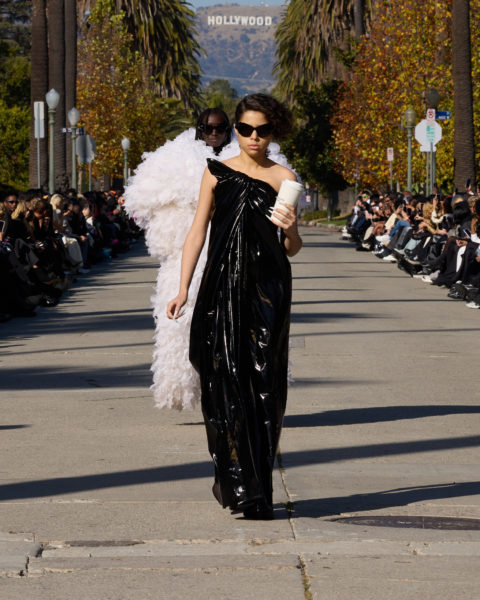
Despite its goal of focusing on pared-down craftsmanship, Balenciaga’s Fall 2024 show seemed almost intentionally void of down-to-earth visuals. Using luxury branded coffee cups and flashy athleisure, it poked fun at the contradiction of a culture that is both obsessed with inner wellness and painstaking physical perfection.
It’s gimmicks like these that made Demna’s Balenciaga the hottest brand of 2021. He had models trudging through simulated snow storms as a nod to the climate crisis. He took over the New York Stock Exchange to muse on corporate greed. But this show, taking place in the epicentre of showbiz with nearly every A-lister in attendance, brings a meta element to its satirical superficiality.
In some ways, Balenciaga — in all its meme-making mysteriousness — is a microcosm of the Hollywood beast. Perhaps this crossover is the most authentic move it could make.

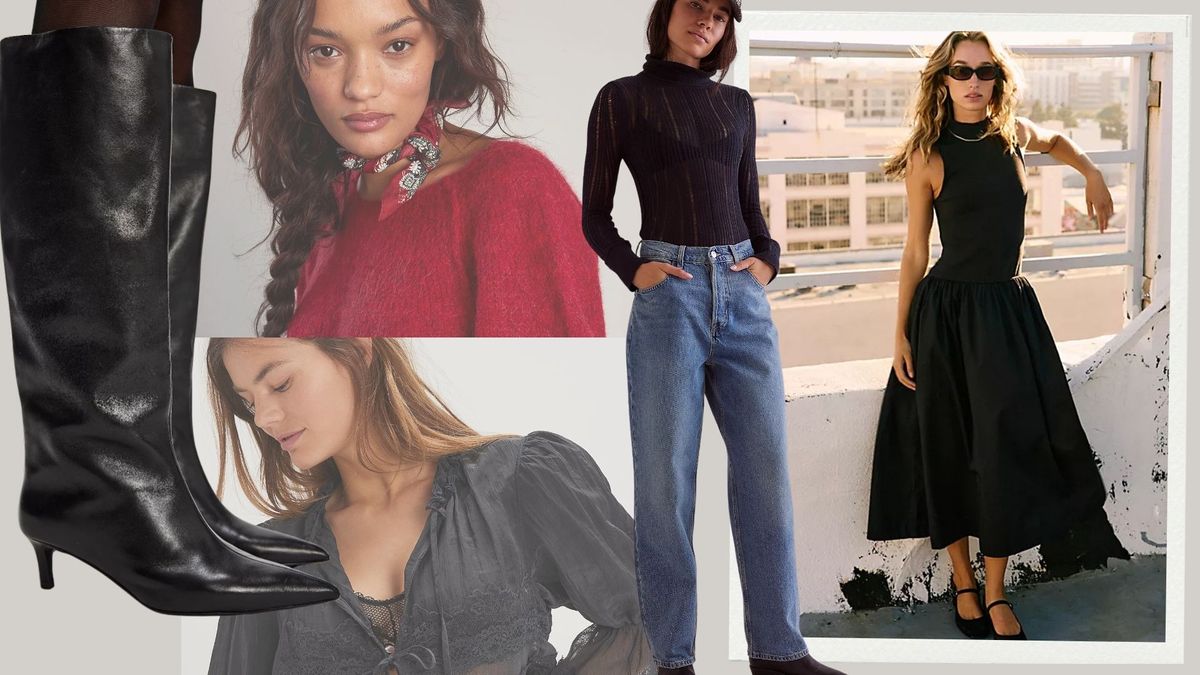
:quality(85):upscale()/2024/11/01/835/n/1922564/bfa93947672525e50f3021.35859863_.jpg)
